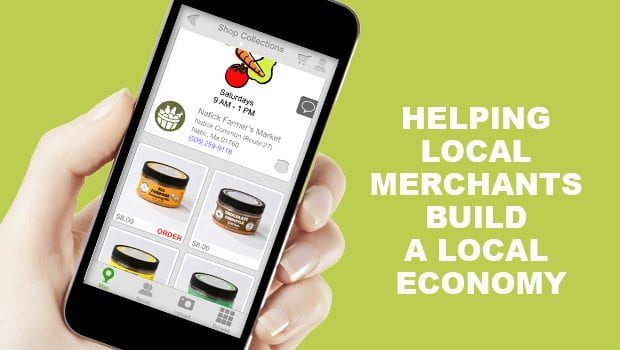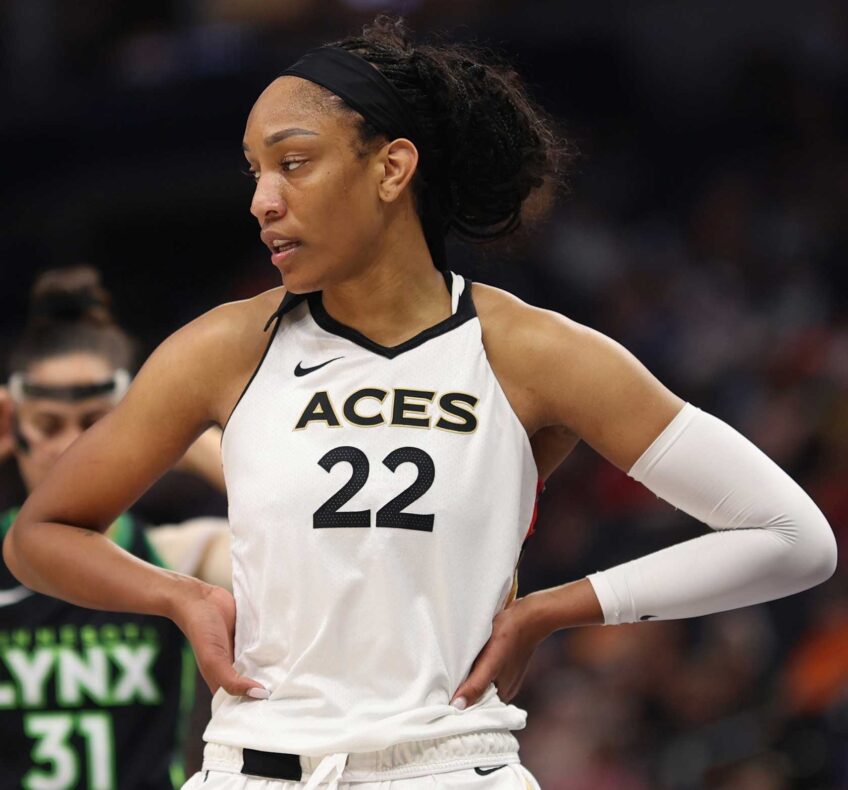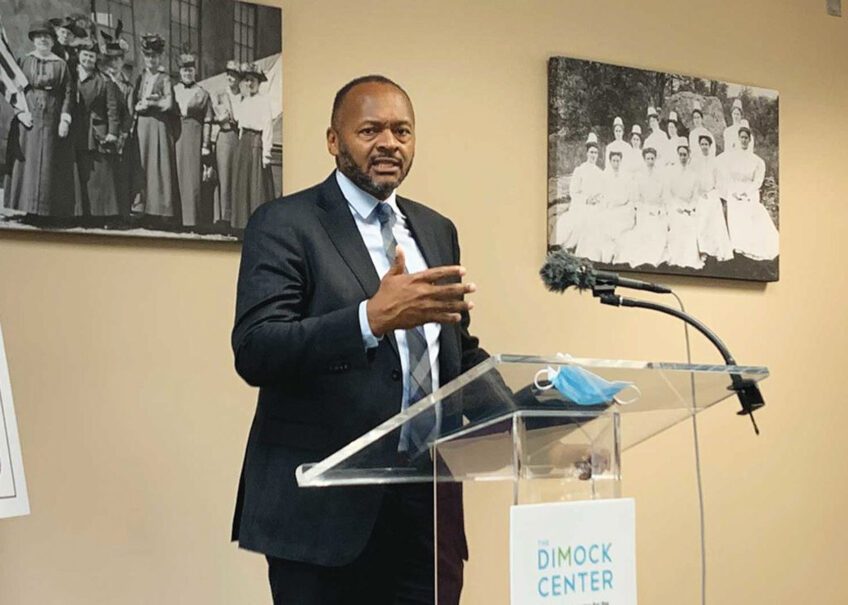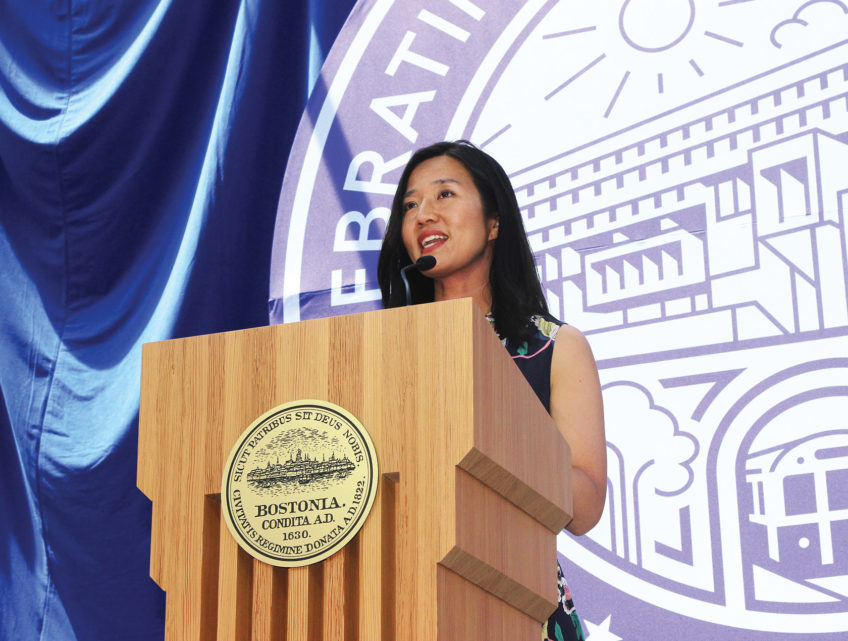Entreprenuer Mai Libman connects shoppers to local products with mobile phone app


Mai Libman, CEO and co-founder of Savione. (Photo courtesy of Savione)
When Mai Libman launched her mobile app Savione she wanted a way to promote local neighborhood stores and help them compete with the likes of Amazon and Walmart. While she knew that small business owners did not have the money to use technology the way giant retailers could, she had no idea how enthusiastic retailers would be about using a community-driven platform to do so. She also had no clue that the app’s biggest adopters would be farmers’ markets, an industry mostly considered as far away from technology as one can imagine.
However, less than a year after the release of the first version of Savione — which went live in November 2013 — the second version of the app is out and is heavily buoyed by the success with farmers markets. Its users include: SOWA Farmers Market, West Roxbury Farmers Market, Brookline Farmers Market, Natick Farmers Market and The Marketplace at Simpson Spring.
The Brookline-based Savione offers an app that is designed to help consumers shop in local stores with a platform that connects shoppers with products and deals. The app provides a way to get shoppers to come into brick-and-mortar stores, but it is still linked with the most up-to-date prices, deals and inventory that are the benefits of e-commerce platforms.
The app gathers a network of shops, offering current products and views of the store that vary depending on a user’s location. From Back Bay to Coolidge Corner to West Roxbury, the app has hundreds of stores in its database. Users can search for the specific types of products, from women’s fashion to men’s fashion to local produce and artisanal foods.
With its mission of boosting the business of local retailers, Savione is not just another place to locate every retail option in the area — like Yelp. As such, you will not find Staples or Walmart or Dunkin’ Donuts or Starbucks with the app. The stores the app promotes must be independent brick-and-mortar stores with no more than a couple of locations.

Screen shot of the Savione app.
“I founded Savione with a goal of helping local merchants because they can’t compete with Amazon and Walmart,” said Libman, 36, who grew up in Lawrence and now lives in Brookline. “The whole entire platform is about building community and supporting local. The whole social mission of it is to help these local merchants so we can help build a local economy.”
Libman, who serves as the company CEO, founded Savione with Sagi Yaacoby, an experienced business development, operations and project management executive with experience in Internet and consumer goods. Yaacoby serves as the company chief operating officer.
They started with local Coolidge Corner merchants to find out how they could better connect consumers with stores in the face of an online retail industry that puts almost any product and the best deals only a click away.
They found a need to develop a social media-driven platform that could allow small retailers to compete with the giants but still offer the promise of a small, local retail experience.
“People want to support local, but people don’t end up finding a way to do it. Online is just easier and that is how you lose people,” Libman said. “You can order something from Amazon and in a day or two it is here. Because of this, local merchants are going out of business, and diminished sales are becoming more and more of a trend.
“If this continues to happen it will lead to more and more empty towns,” she added, saying Savione wants to do its part to help stop this from happening.

Town of Brookline officials suggested to Libman that she test the app with the Brookline Farmers Market, which Savione did last winter. In doing so, they stumbled on tremendous market segment for the app.
As Libman explains, with a farmers’ market containing as many as 30 to 40 vendors there is no easy way to get a sense of who is selling what and where it is located in the market. Part of the experience of a farmers’ market is just to show up and see what you can find, but it is often hit or miss. Savione reduces the uncertainty because the vendors can let consumers know exactly what kind of products they have that day and how much is left.
Working with farmers’ markets even triggered the evolution of Savione, as they are now working on features that will allow consumers to buy products through the app that will then be held for pick up at the market or to pre-order specialty items for pick up.
For consumers, the Savione app is downloadable for free from the Apple App Store. The Savione platform is also provided free to businesses.
The company generates revenue through the extra tools and services it offers to support or enhance the Savione platform, such as the buy button or mobile commerce system, as well as data analytics services. The mobile commerce system will generate a commission of every transaction, as well as a fee for processing payment.

Screen shot of the Savione app.
According to Libman, the company is currently testing and working with vendors on an appropriate pricing model. She said she expects to roll out a fee structure for the mobile farmers market platform shortly.
“The overall mission is to have an impact, but ultimately we need to generate revenue for the customer and for us,” she said.
Libman and Yaacoby have funded the company on their own so far, and are encouraged by the potential size of the market.
Libman points to figures from the SBA that show the retail small business market in Boston is a $3.5 billion industry. She also points to U.S. Department of Agriculture numbers that suggest the farmers market industry in Boston is worth $222.5 million, with the overall U.S. farmers market industry topping $7 billion.
She expects that Savione will need to raise outside funding at some point in order to expand company operations, but they are being cautious on this front.
“I want to make sure it is proven and we can get to a certain point and say we are ready to raise X amount,” she said.
A graduate of Bowdoin College in May 2000 with a bachelor’s degree in government and a minor in economics, Libman also received a master’s degree in development economics from Princeton University in May 2002.
She spent the earlier years of her career in the public sector working for World Bank, the United Nations Development Programme and the Social Security Administration. She traveled the world with these jobs, but decided to return to Boston in 2007 not long after her daughter was born. She also has a four-year-old son.
While raising her young children, she dedicated time to the Dorchester nonprofit Viet-Aid and consulted for the Urban League of Eastern Massachusetts.
She also hatched the idea of creating her own business with the hope that it would have an impact on her community.
“When I first dived into the startup world people were like, ‘You are supposed to live and breathe your startup. How can you even work on your startup if you have two kids?” Libman said. “But it doesn’t matter that I am a mom. I am going to work hard regardless. Having Savione is like having a third child.”






